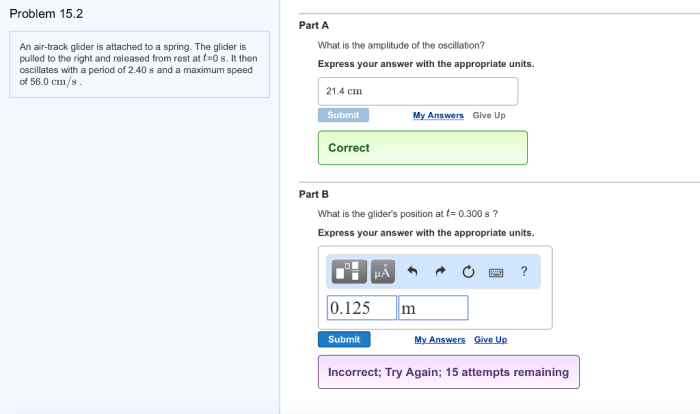Embark on a comprehensive exploration of specific heat with our meticulously crafted specific heat practice problems worksheet with answers pdf. This invaluable resource empowers students with a thorough understanding of specific heat, its applications, and its significance in various fields.
Delve into the intricacies of specific heat, unraveling its definition, units, and relationship with temperature. Master the art of calculating specific heat using our step-by-step formula and explore practical applications in heating and cooling systems. Discover how specific heat shapes our everyday lives, from cooking to industrial processes.
Specific Heat Practice Problems Worksheet with Answers: Specific Heat Practice Problems Worksheet With Answers Pdf
Introduction to Specific Heat
Specific heat is a measure of the amount of heat required to raise the temperature of a unit mass of a substance by one degree Celsius. It is a property of the substance and is typically expressed in units of joules per gram per degree Celsius (J/g°C).
The specific heat of a substance can vary with temperature, but for most substances, it is approximately constant over a wide range of temperatures.
Calculating Specific Heat, Specific heat practice problems worksheet with answers pdf
The specific heat of a substance can be calculated using the following formula:
$$c = Q/(m \Delta T)$$
where:
- cis the specific heat (J/g°C)
- Qis the amount of heat absorbed or released (J)
- mis the mass of the substance (g)
- ΔTis the change in temperature (°C)
To measure the specific heat of a substance, the following steps can be followed:
- Measure the mass of the substance.
- Heat the substance to a known temperature.
- Measure the change in temperature of the substance.
- Calculate the amount of heat absorbed or released by the substance using the formula Q = mcΔT.
- Calculate the specific heat of the substance using the formula c = Q/(mΔT).
Applications of Specific Heat
Specific heat is used in a variety of applications, including:
- Designing heating and cooling systems
- Calculating the energy required to change the temperature of a substance
- Understanding the thermal properties of materials
For example, the specific heat of water is 4.18 J/g°C. This means that it takes 4.18 joules of energy to raise the temperature of 1 gram of water by 1 degree Celsius.
Practice Problems
The following practice problems can be used to test your understanding of specific heat.
| Problem | Solution |
|---|---|
| What is the specific heat of a substance that absorbs 100 J of heat and its temperature increases by 20°C? The mass of the substance is 50 g. | 2 J/g°C |
| How much heat is required to raise the temperature of 100 g of water from 20°C to 80°C? | 25,100 J |
| A metal block with a mass of 200 g has a specific heat of 0.4 J/g°C. What is the change in temperature of the block if it absorbs 400 J of heat? | 100°C |
FAQ Compilation
What is specific heat?
Specific heat is a measure of the amount of heat required to raise the temperature of a unit mass of a substance by one degree Celsius or Kelvin.
How do I calculate specific heat?
Specific heat can be calculated using the formula: Q = mcΔT, where Q is the amount of heat absorbed or released, m is the mass of the substance, c is the specific heat of the substance, and ΔT is the change in temperature.
What are some applications of specific heat?
Specific heat is used in various applications, including designing heating and cooling systems, calculating the energy required to change the temperature of a substance, and understanding thermal processes in industries.
